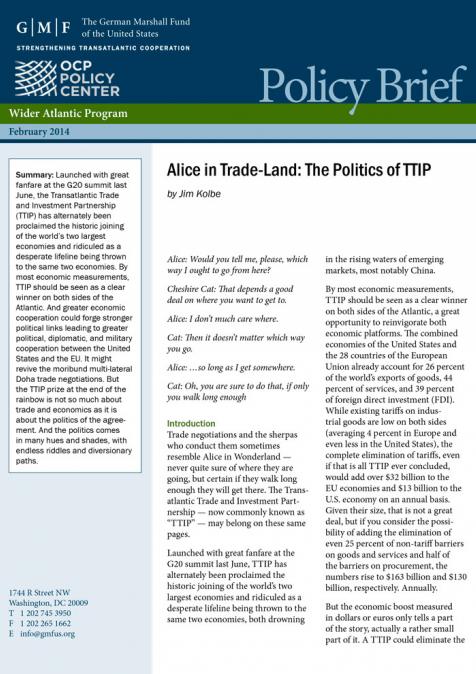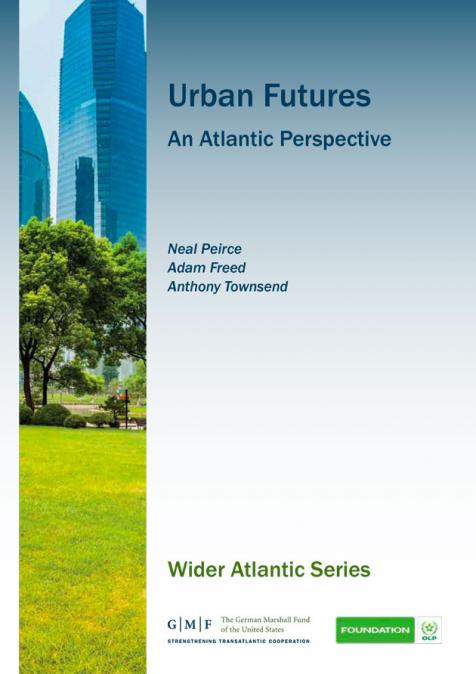RELATED CONTENT
-
March 28, 2014Paul Isbell, CAF Energy Fellow at the Center for Transatlantic Relations at Johns Hopkins University-SAIS in Washington, D.C. ...
-
February 25, 2014...
-
AuthorsJim KolbeFebruary 13, 2014Launched with great fanfare at the G20 summit last June, the Transatlantic Trade and Investment Partnership (TTIP) has alternately been proclaimed the historic joining of the world’s two largest economies and ridiculed as a desperate lifeline being thrown to the same two economies. By most economic measurements, TTIP should be seen as a clear winner on both sides of the Atlantic. And greater economic cooperation could forge stronger political links leading to greater political, dipl ...
-
AuthorsNeal PeirceAdam FreedAnthony TownsendJune 24, 2013This policy paper examines the importance of cities as global policy actors, innovators, and collaborators. While a global phenomenon, the authors of this paper identify specifically how the evolution of the importance of cities as global policy actors, innovators, and collaborators unfolds in the cities of the Northern Atlantic Basin versus the cities in the Southern Atlantic Basin. Despite the important differences between the cities of the Atlantic Basin, technology and the impa ...
-
AuthorsJohn B. RichardsonArmando Marques GuedesXavier de la GorceAnne-François de Saint SalvyPaul HolthusNovember 29, 2012This paper examines the challenges posed by human activity on the Atlantic Ocean itself, and around its coasts, looking at it not so much as a vast expanse separating the Americas from Africa and Europe but rather as a shared resource and an important connector. All littoral states face a common challenge in maintaining its value as a foundation for sustained “blue growth” in the years to come. In Chapter 1, Armando Marques Guedes traces the evolution of the economic activities that ...
-
AuthorsFrançois GemenneMarch 1, 2011This paper analyzes the future of migrations related to climate changes and environment degradations. He shows how the dominant public reasoning remains inappropriate for addressing these issues, because of the Western/Northern countries' misconception of the relation between migration and environmental changes, including the cultural and political biases these countries show in the solutions they propose. The discrepancy between public policies and the actual reality of climatic an ...
-
-
Moderator: Khadija Ihsane, Journalist, Medi1TV - Assia Bensalah Alaoui, Ambassador at Large of His Majesty the King of Morocco - Kassie Freeman, President and CEO, The African Diaspora Consortium - Silas Lwakabamba, Former Minister of Education, Rwanda ...






